The Politics and Poetry of the Streets
Tagging in Latin America
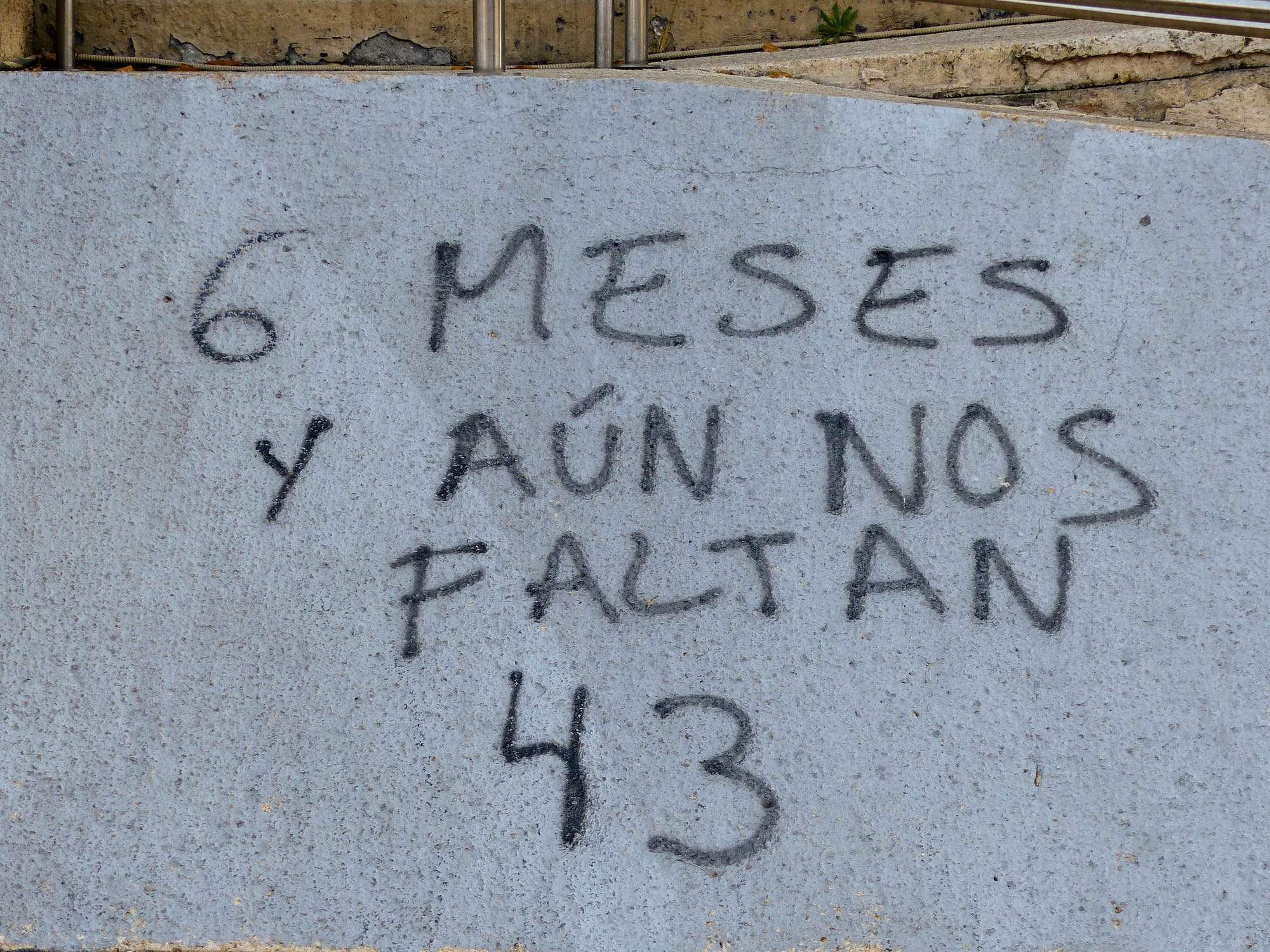
This article was originally published on my Medium site, and contains a few updates.
In 2014, 43 students with bright futures went missing in Iguala, Mexico. This was yet another instance of corruption that really pissed off the citizens of the country, and widespread protests hit the streets. This tragedy gained worldwide attention, and the government was forced to act — although it was mostly pinned on a drug cartel, government officials in Iguala were eventually arrested.

On March 11, 2021, a young trans person named Tehuel went missing in Buenos Aires two weeks before his 22nd birthday. The two men charged with his murder are yet to go to trial, and Tehuel has not been found.
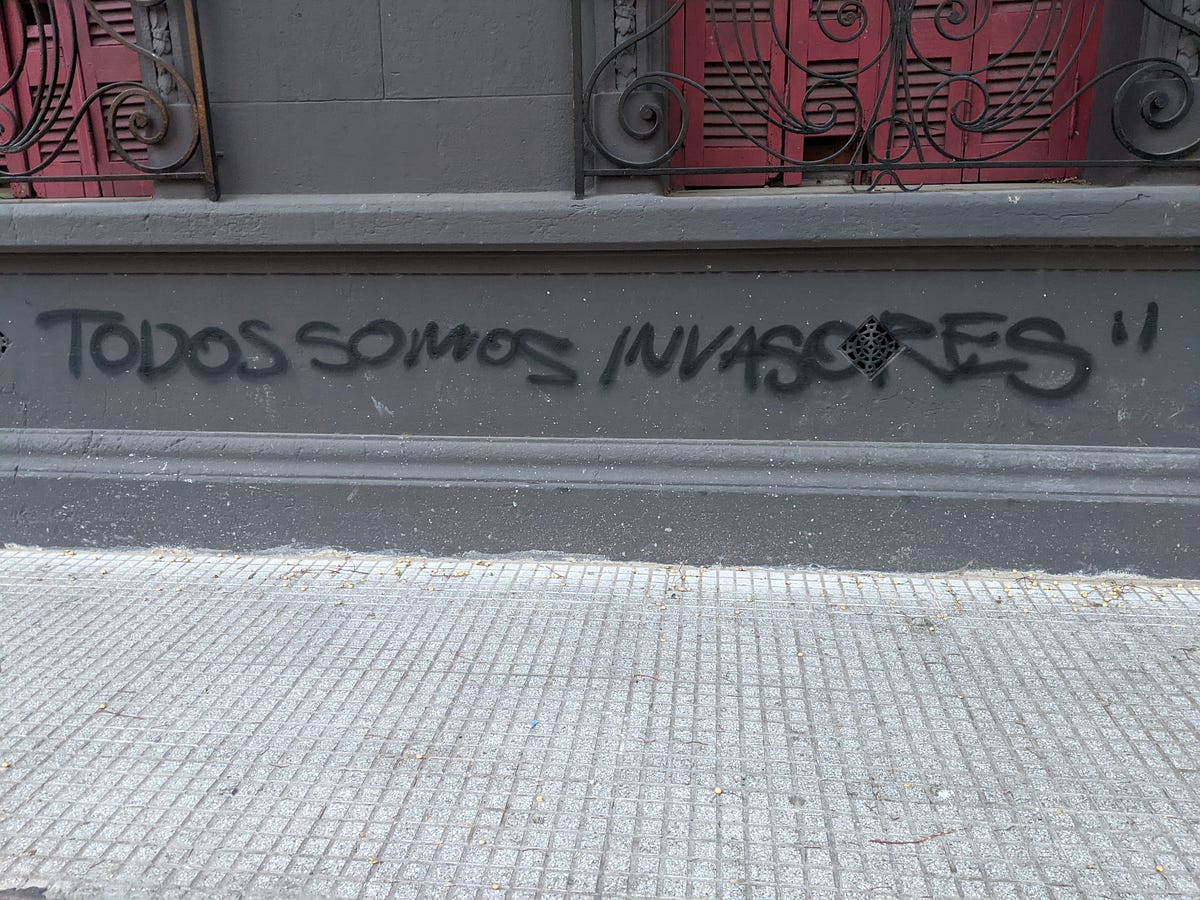
What do you think this is in reference to? Is it possible invasores should be translated to occupiers?
It could be argued any type of tagging, or graffiti, is political. Kids getting into hijinks is one thing, but what’s the underlying motivation? A frustration about the prospect of being too poor to own property? The need to feel seen and acknowledged? Schools not having sufficient funding for an outlet for artistic endeavors? Everyone has a vice?
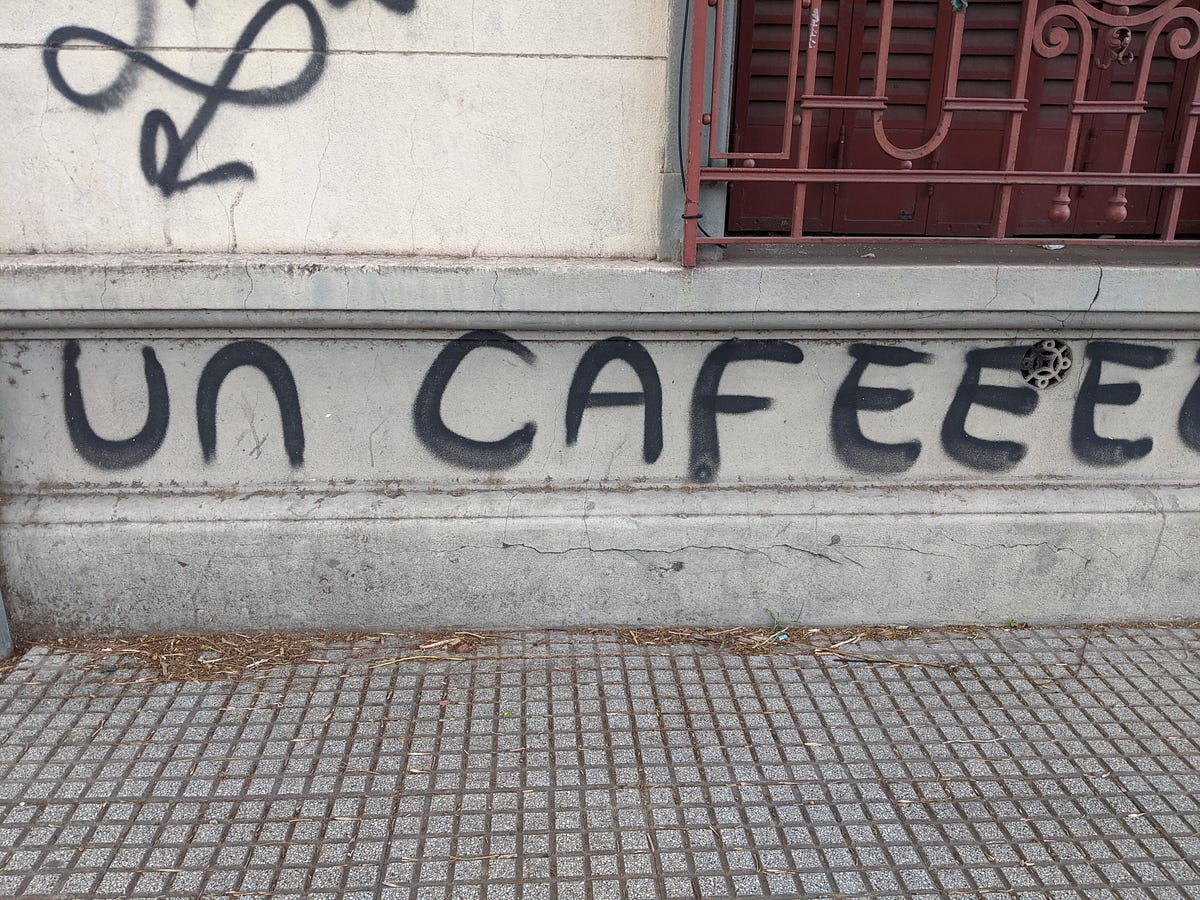
Now, into the more poetic graffiti…
I don’t know about you, but looking at this photo during the afternoon slump makes me yawn. I like the design choices of the U and the N. There are a lot more Es.
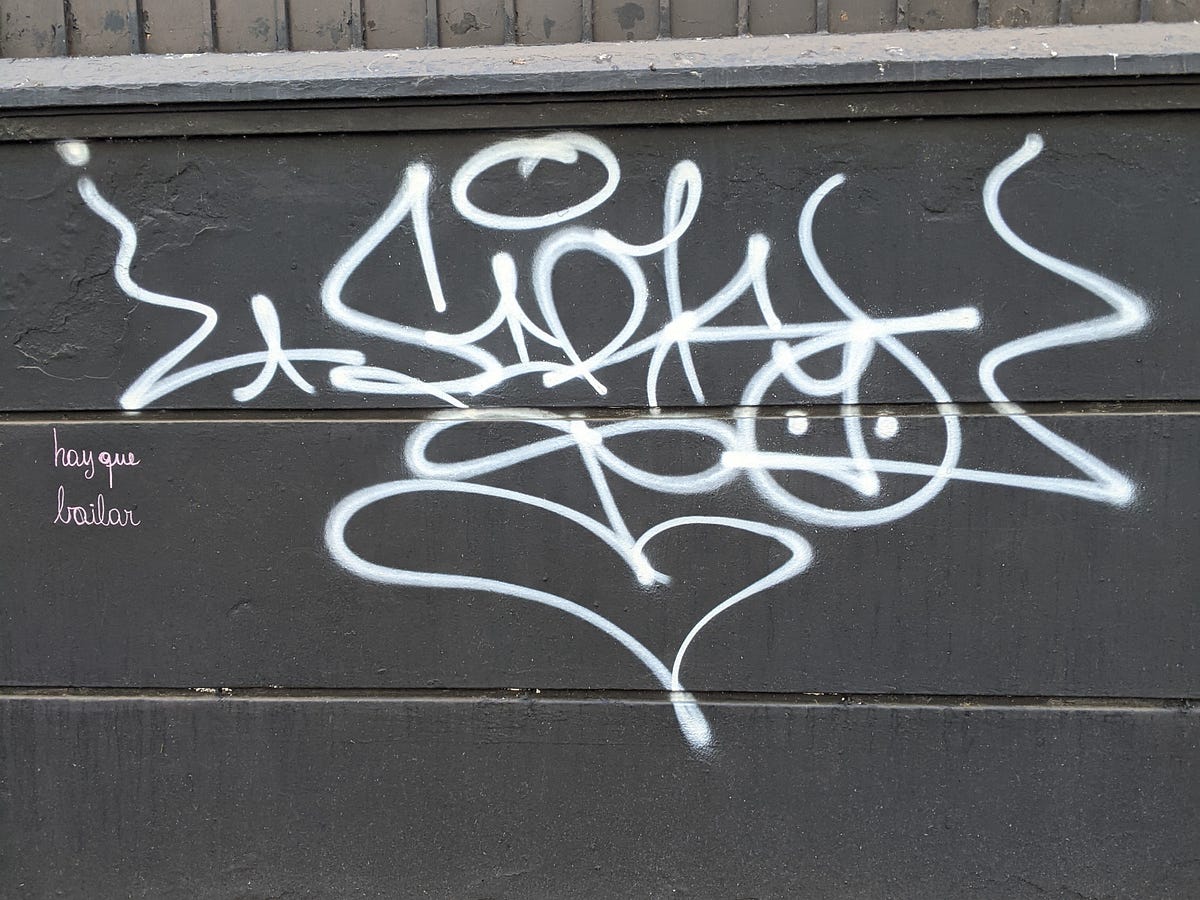
Cool tag in the middle, but the pink cursive message, possibly in marker, is saying something much more important.
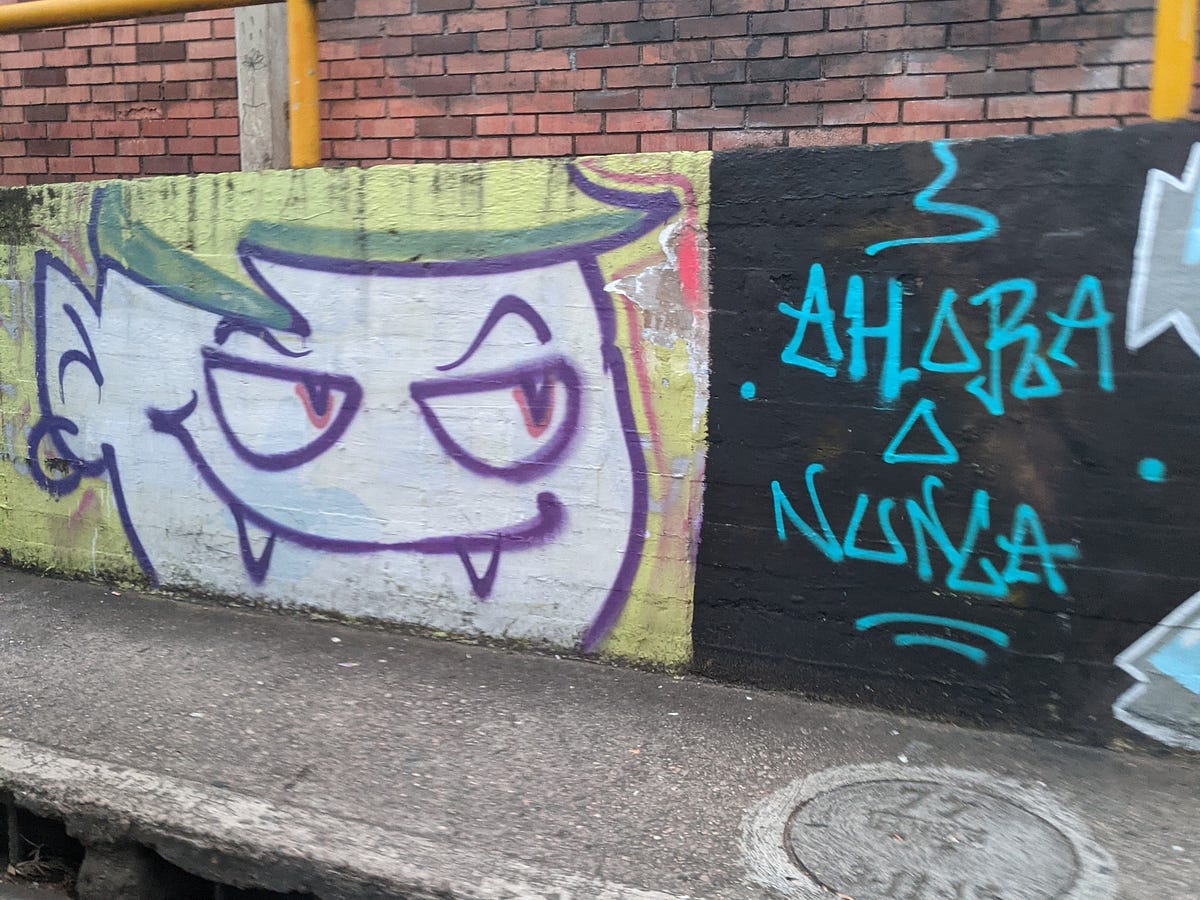
Very cool triangular lettering. I took this from a car, so that’s why it’s a bit blurry.
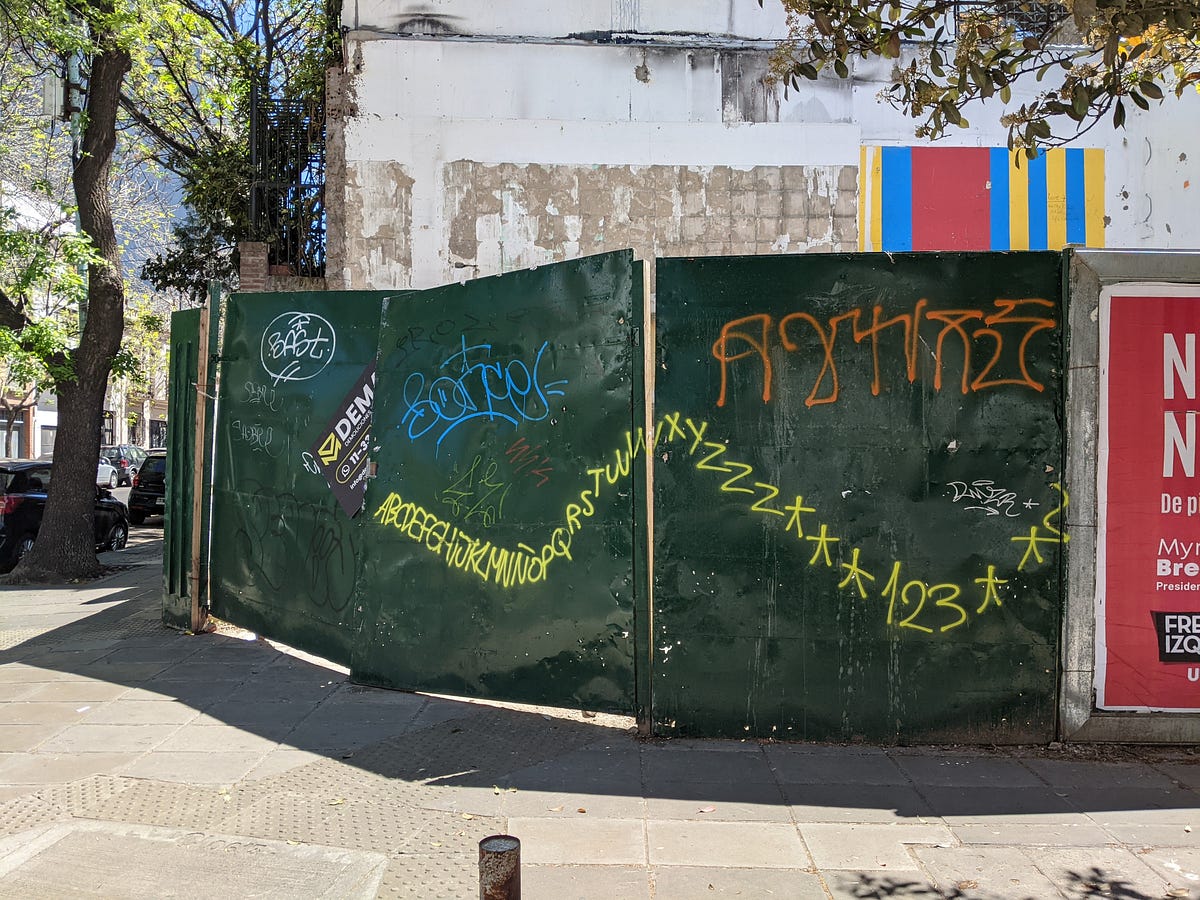
This person could have done this in a straight line, but chose not to. Do you think at around N they realized they would need more space and made a sharp turn?
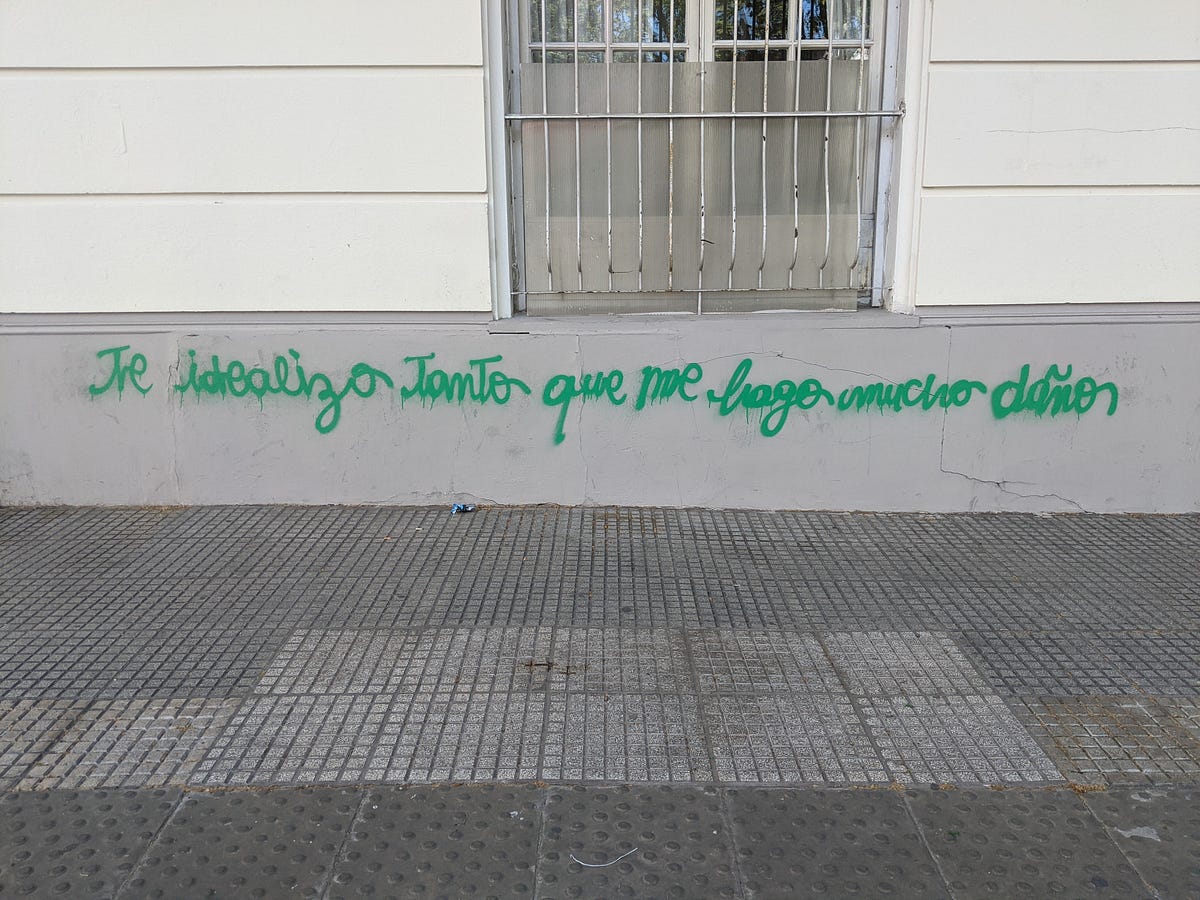
One out of a series I saw in the neighborhood.
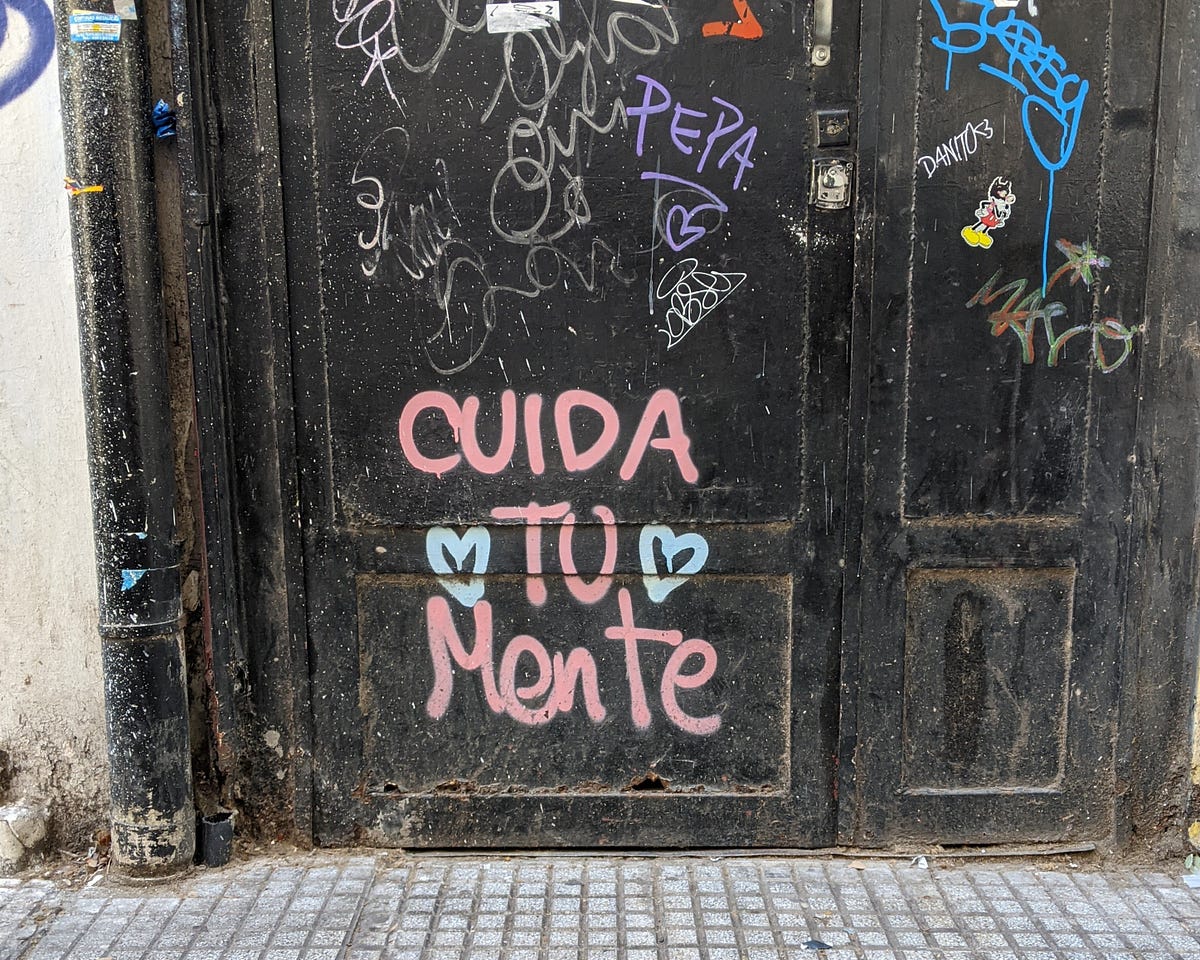
Take care of your mental health.
Until next time…
